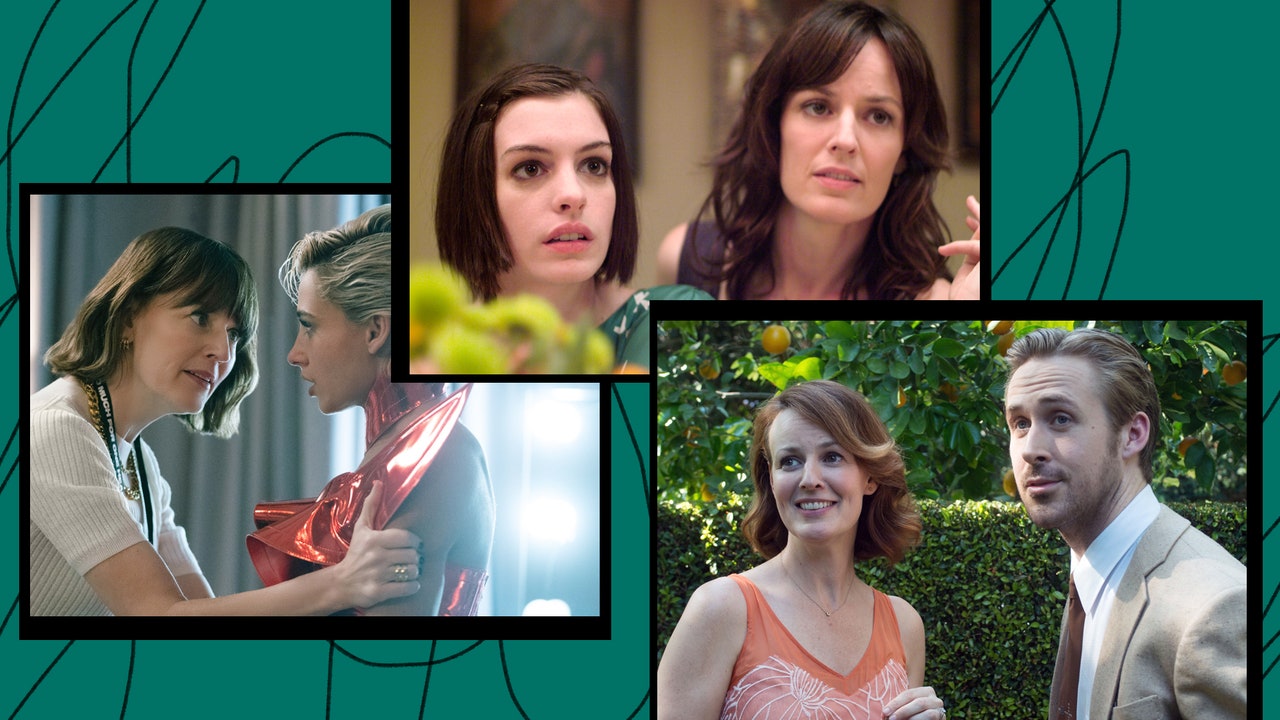In Always Great, Awards Insider speaks with Hollywood’s greatest undersung actors in career-spanning conversations. In this installment, Rosemarie De
In Always Great, Awards Insider speaks with Hollywood’s greatest undersung actors in career-spanning conversations. In this installment, Rosemarie DeWitt revisits her breakout roles in the likes of Mad Men and Rachel Getting Married, and connects them to her busy year as the scene-stealer of Smile 2 and Out of My Mind.
When Rosemarie DeWitt first came to LA, she experienced what she now calls a “rude awakening.” The New York native started blossoming on her hometown stage in her early 30s, winning an Obie for Craig Lucas’s Small Tragedy and earning raves for her work in the first revival of John Patrick Shanley’s Danny and the Deep Blue Sea. She decided to give Hollywood a try against the advice of her agent: “He’s, like, ‘You don’t have enough juice, you have to go out there when you’re more established.’” DeWitt quickly booked a lead in the 2006 pilot Standoff, about two FBI hostage negotiators who are also (twist!) in love. It was a major breakthrough—and a wake-up call.
“The FBI vests were like half-shirts, and I had heels on,” DeWitt says. As the auditions and screen tests piled up, the wardrobe notes kept coming: “They were, like, ‘Can she wear a tighter-fitting pantsuit with a push-up bra?’ I went to Victoria’s Secret to just get a different bra, and they were, like, ‘Here are the instructions,’ and I was, like, ‘The instructions for the bra? If I don’t get this job, I’m going to do a one-woman show about trying to get this job.’” She booked it. The show, which costarred Office Space breakout Ron Livingston, was a imaginative mess and lasted only a season—but DeWitt and Livingston really did fall in love and have been together ever since (they married in 2009).
After Standoff, DeWitt made a name for herself with award-winning turns in indies like Rachel Getting Married and Your Sister’s Sister, and scene-stealing supporting roles across prestige TV hits like Mad Men and United States of Tara. Her performance style is naturalistic, emotionally sophisticated, and tartly entertaining, reflective of her interests as an actor. “I like the part where I get closer to myself and tell the truth about the things I’m scared to tell the truth about,” she says. “I wasn’t ever auditioning for parts where I had to put on an accent and walk with a limp or have a humpback.”
Right now, though, DeWitt is inching outside that comfort zone. She gets gory and terrifying in Smile 2, playing the volatile mother of a traumatized pop star (Naomi Scott) and has also dipped into the comics world by crashing the most recent season of The Boys. “Most people don’t ask me to do anything grotesque ever,” she says. “I was interested in pushing myself to be gross.”
DeWitt’s first job after Standoff was the pilot of Mad Men. “I remember reading the script and saying, ‘Oh, this will never get made. It’s too good. It’s too sophisticated,’” she says. She didn’t feel like an obvious fit for the role of Midge, Don Draper’s mistress, either—but her unique audition, perhaps informed by what she went through on Standoff, set her apart. “Matt [Weiner], the creator, said that, ‘Everyone came in with this very sexy take,’ and I didn’t even think of her as sexy—I just thought she was an artist,” DeWitt says. “She was hungry for experience and art and life.” DeWitt tells me she related to that part of the character, shaping Midge into a troubled bohemian artist over a six-episode arc.
By the time she was invited back years later, for a one-time guest appearance, Mad Men had emerged as a cultural phenomenon. They kept the script from her until less than 48 hours before shooting. “Everything was so hush-hush,” she says. Only at the table read did she discover the twist of Midge’s return: She’d become a desperate heroin addict. “I looked at Matt Weiner: ‘It’s heroin? You couldn’t tell me it was heroin? I’m shooting this in two days and I have to play a heroin addict? I could have used some prep time!’”
Around this same period, DeWitt got slotted into a particular niche. She kept getting cast as a sister—to Toni Collette in United States of Tara, to Anne Hathaway in Rachel’s Getting Married, to Emily Blunt in Your Sister’s Sister. Arguably, these projects gave DeWitt her strongest screen roles, each imbued with the loving but melancholy distance that grows between siblings from childhood to adulthood. Her role in Rachel Getting Married was smaller on the page—“It probably could have gone to an actress who was a lot more established”—before director Jonathan Demme beefed it up after DeWitt’s audition. She went on to receive Gotham and Spirit Award nominations for the film, and won critics prizes around the country.

COMMENTS